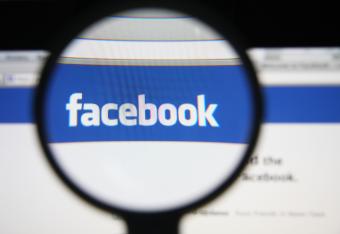
Social media sites are growing every day with millions of users in the U.S. and around the world. Yet despite social media's popularity, there are situations where its use may be banned.
Social Media Bans at Work
In 2016, 36 percent of companies reported they ban social media access in the workplace, while companies that allow access have gone from 53 percent to 43 percent. The trend appears to be for more companies to ban Facebook, Twitter, YouTube, and other popular social networks.
Reasons for Work Bans

Some reasons companies believe banning social media in the office is a good idea are:
- It bolsters productivity with fewer staff members getting distracted by checking their social media constantly.
- It eliminates the possibility staff can use social media during work hours to engage in bad behavior.
- It ensures a company will not receive blame if an employee posts something controversial on social media while at the workplace.
- It protects data and computer hardware by not allowing any possible corrupted files, malware, or viruses that may come from social media use.
Benefits of Using Social Media at Work
Many human resource directors and employees counter that banning social media at the workplace is counter-productive and futile.
- Mobile device management at work is an issue. Unless you confiscate each employee's phone or tablet each morning, you cannot stop them from accessing their social media accounts.
- Bans infantilize employees and erode their sense of trust for company leaders. Employees expect to be respected and treated as adults.
- Many employees feel using social media makes them more productive and increases their happiness and creativity at work.
- Many employees need social media access to do their jobs.
- Potential hires may be turned off by working at a company if they learn about a restrictive social media policy.
Social Media Bans in Schools
Schools are grappling more and more with the decision to allow students to have access to social media during the school day.
Potential Benefits of School Social Media Bans

Many of the arguments schools present in favor of banning social media are similar to those at the workplace:
- Teachers and school administrators are concerned social media can harm a student's ability to focus.
- Harassment and cyberbullying by other students is a real concern with school-age children. This leads to depression, anxiety, and even suicide.
- Children can also be at risk from online predators.
Social Media Can Play a Positive Role in Schools
Advocates of allowing social media in school acknowledge problems exist but feel the benefits outweigh the risks:
- Children need to learn positive use of social media, and the classroom can be an effective environment to do this.
- Banning access to social media is counterproductive, and students can access it through their cell phones and other mobile devices.
- Some argue that rather than banning social media, schools should develop an effective social media policy that keeps children safe while promoting the useful aspects of online interaction.
- Students can use social media apps to fight against bullying and help anonymously report anti-social behavior that can lead to tragedies like school violence and teen suicides.
Parental Bans for Children
Many parents are understandably concerned about the impact of social media on younger children and adolescents. Cyberbullying and the potential for abuse from predators are worries parents in the past never had to worry about.
Reasons Parents May Want to Ban Social Media

In 2011 when social media use was just starting to explode, the American Academy of Pediatrics issued a report summarizing research on the effects of social media on children. The report echoes many of the risks that lead to parents banning social media use by their children:
- Children and adolescents experience intense peer pressure. This can lead to inappropriate behavior online by one's children, as well as abuse and harassment from others.
- Children may have access to material their parents don't want them to see.
- Children can become overly focused on interacting with others online to the detriment of real in-person interactions, which hurts their growth of social skills at a critical time of development.
Banning Children from Social Media Is Impractical
Banning social media for children is considered by many to be an extreme, and most likely impossible, solution. It is estimated that almost 50 percent of children up to 11 years of age will have a smartphone, and almost 93 percent of adolescents 12 to 17 will have one. Add to that the easy availability of the internet for children at libraries, through their friends and widespread access to free WiFi, keeping children from using social media is an impractical solution.
Healthy Use of Social Media by Children
Proponents of social media use by children encourage parents to take an active role in monitoring their children's social media use and fostering the educational and creative benefits:
- Children and teens who use social media will be learning important skills that can be helpful to them in their future careers.
- Coddling children by protecting them from bullying will make it harder for them to handle difficult situations later in life. Parents can take an active role in discussing harassment and online privacy with children and provide them with the tools to deal with social media. This empowers children to grow into strong adults and deal with an increasingly digital world.
- There are many social media sites that are made for children that promote positive friendships and networking.
- The American Academy of Pediatrics promotes a healthy "family media use plan" for social media that allows parents to limit computer time depending on a child's age and making sure they have social and physical activities mixed in their daily life. Children and teens can still enjoy social media without going overboard and experiencing negative consequences.
Social Media Bans in Prisons
Another area that people may not be aware of the issues involving social media use is in prisons. Prison officials are concerned about the inappropriate and possibly dangerous use of social media by inmates:
- There have been incidents were prisoners held protests that were coordinated via social media.
- Social media could be used by inmates to harass victims, witnesses, and prison staff. It can also be used to organize crimes outside prison by others.
Social Media Provides Benefits for Inmates
Civil libertarians and rehabilitation staff argue social media can have a positive effect on inmates:
- Recidivism experts have found that inmates who have social and family ties are more likely to not return to a life of crime once they leave jail. Social media is one-way inmates can keep in regular contact with others who can support them.
- There are troubling issues surrounding inmates' First Amendment rights and use of social media. There have been situations where prisoners used social media to report unsafe conditions and prison violence to the media.
- Most prisoners never finished high school and access to social media, as well as the overall internet, can help them get the education they need to succeed once paroled.
Countrywide Bans on Social Media
Some countries have put restrictions on social media use for entire populations. This would seem like an anathema to First Amendment-loving Americans. While some countries ban social media to reduce the free flow of information, others have done it on a short-term basis.
Can Governments Really Ban Social Media?
While there's no such restrictions in place in the United States, social media usage has clearly struck a nerve in many countries. Most might think it's only totalitarian regimes that ban social media. At the very least, the United Kingdom and other countries in the European Union and Southeast Asia are concerned with restricting behavior on social media to combat abuse, hate speech, and violence. Americans should continue to monitor these situations to be aware of when similar restrictions might be proposed in the U.S.
Social Media Concerns Over "Hate Speech"
A related topic to the banning of social media to quell violence and online abuse is the promotion of "hate speech." Many people have complained about negative posts on popular platforms Facebook and Twitter and have called for the companies to ban abusive posts. Others will argue that freedom of speech is a fundamental right, and this includes speech that may be unpopular. There are also many practical considerations for a ban on hate speech on social media related to determining the definition which is different depending on who is asked. Many social media sites are looking into enforcing codes of conduct more which has already been implemented in Europe and is likely to be proposed in the U.S. although to what success it is hard to predict.
Should Social Media Be Banned?
In the workplace, schools, home, prisons and even entire countries, the argument to ban social media has some rational and legitimate reasons. The desire to protect individuals, organizations and potential victims coupled with issues of productivity and distractions are valid concerns. However, on the pro social media side, supporters highlight the issues regarding free speech and the positive educational and social benefits of using social media.







